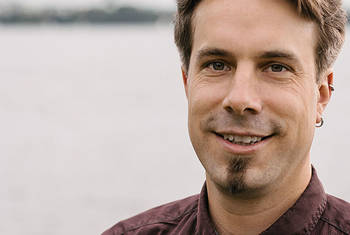Tobias Lenz Why Are Some Genetically Caused Diseases so Frequent in the Human Population?
Tobias Lenz is Research Group Leader in Evolutionary Immunogenomics at the Max Planck Institute for Evolutionary Biology. Previously, he was Postdoctoral Fellow at the same Max Planck Institute and at Harvard Medical School. His main research focus is on immunogenomics, the evolution of the major histocompatibility complex and the genetics of host-parasite coevolution. For his current research project he received an Emmy Noether Grant from the German Research Foundation.
Area of Research
Evolutionary Biology
since 2014
Research Group Leader in Evolutionary Immunogenomics
Max Planck Society (more details)
Max Planck Institute for Evolutionary Biology
2011-2014
Post-doctoral Research Fellow, Division of Genetics
Harvard University
Harvard Medical School
2009-2011
Post-doctoral Research Fellow
Max Planck Society (more details)
Max Planck Institute for Evolutionary Biology
2005-2009
2001-2005
Diploma in Zoology
University of Hamburg (Universität Hamburg)
1998-2001
Studies in Biology
University of Hamburg (Universität Hamburg)
- BMC Genomics
- BMC Immunology
- BMC Evolutionary Biology
- Evolution
- Evolutionary Ecology
- Genome Biology and Evolution
- Genomics
- Heredity
- Human Molecular Genetics
- Immunogen
- Gene
- Molecular Biology and Evolution
- Molecular Ecology
- Nature Communications
- PLOS Genetics
- PNAS
- Proceedings of the Royal Society London B
- Scientific Reports
- Tissue Antigens
 © Maximilian Dörrbecker
© Maximilian Dörrbecker
Max Planck Society
"The Max Planck Society is Germany's most successful research organization. Since its establishment in 1948, no fewer than 18 Nobel laureates have emerged from the ranks of its scientists, putting it on a par with the best and most prestigious research institutions worldwide. The more than 15,000 publications each year in internationally renowned scientific journals are proof of the outstanding research work conducted at Max Planck Institutes – and many of those articles are among the most-cited publications in the relevant field." (Source)
Institute
Max Planck Institute for Evolutionary Biology
The Max Planck Institute for Evolutionary Biology consists of the three departments Evolutionary Ecology, Evolutionary Genetics and Evolutionary Theory, the fourth department Microbial Population Biology is currently building up. The institute is focused on basic research to unravel general evolutionary processes, such as ecological adaptations, benefits of sexual reproduction or evolution of cooperation. The scope of the work includes ecological, organismic, molecular and theoretical approaches. (Source)
Map
Why are some people more prone to sickness than others? Individual people differ in their genetic predisposition to disease. TOBIAS LENZ and his research group investigate whether historical selection by pathogens – by infectious agents – has shaped the genetic makeup of our immune system today. Their specific focus here is on whether selection by pathogens on specific immune genes, so-called HLA genes, has affected the frequency of disease-causing mutation in the neighborhood of these genes. As he explains in this video, they used both computer simulations as well as real sequencing of humans and ran a project on the genetics of medieval Europeans who suffered from leprosy. Their findings indeed support their hypothesis. This can explain, at least in part, the surprising frequency of some genetically caused diseases in the human population today.
LT Video Publication DOI: https://doi.org/10.21036/LTPUB10501
Ancient DNA Study Reveals HLA Susceptibility Loci for Leprosy in Medieval Europeans
- B. Krause-Kyora, M. Nutsua, L. Böhme, F. Pierini, DD. Pedersen, S-C. Kornell, D. Drichel, M. Bonazzi, L. Möbus, P. Tarp, J. Susat, E. Bosse, B. Willburger et al
- Nature Communications
- Published in 2018
Excess of Deleterious Mutations around HLA Genes Reveals Evolutionary Cost of Balancing Selection
- Tobias L Lenz, Victor Spirin, Daniel M Jordan and Shamil R Sunyaev
- Molecular Biology and Evolution
- Published in 2016









